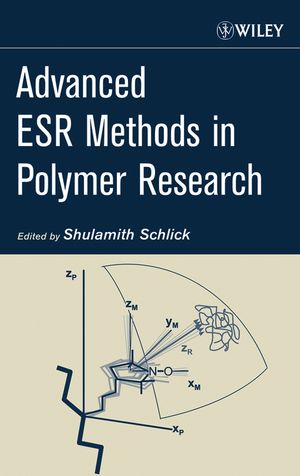Advanced ESR Methods in Polymer ResearchISBN: 978-0-471-73189-4
Hardcover
368 pages
September 2006
 This is a Print-on-Demand title. It will be printed specifically to fill your order. Please allow an additional 10-15 days delivery time. The book is not returnable.
|
||||||
A definitive work on ESR and polymer science by today's leading
authorities
The past twenty years have seen extraordinary advances in electron spin resonance (ESR) techniques, particularly as they apply to polymeric materials. With contributions from over a dozen of the world's top polymer scientists, Advanced ESR Methods in Polymer Research is the first book to bring together all the current trends in this exciting field into one comprehensive reference.
Part I establishes the fundamentals of ESR, from experimental techniques to data analysis, and serves as a valuable overview for the beginning ESR student. Part II introduces the broad range of ESR applications to polymeric systems, including living radical polymerization, block copoly-mers, polymer solutions, ion-containing polymers, polymer lattices, membranes in fuel cells, degradation, polymer coatings, dendrimers, and conductive polymers. By exposing readers to the great potential of ESR, the authors hope to encourage more extensive application of these methods.
The past twenty years have seen extraordinary advances in electron spin resonance (ESR) techniques, particularly as they apply to polymeric materials. With contributions from over a dozen of the world's top polymer scientists, Advanced ESR Methods in Polymer Research is the first book to bring together all the current trends in this exciting field into one comprehensive reference.
Part I establishes the fundamentals of ESR, from experimental techniques to data analysis, and serves as a valuable overview for the beginning ESR student. Part II introduces the broad range of ESR applications to polymeric systems, including living radical polymerization, block copoly-mers, polymer solutions, ion-containing polymers, polymer lattices, membranes in fuel cells, degradation, polymer coatings, dendrimers, and conductive polymers. By exposing readers to the great potential of ESR, the authors hope to encourage more extensive application of these methods.



